Chairman of the Hungarian Democratic Union of Romania (UDMR) Kelemen Hunor argues that it is in the interest of the Hungarian community to be strongly represented in the European Parliament (EP) and mentions that his political formation benefited, in the electoral campaign for the elections to the European Parliament, from the support of Hungary's Prime Minister Viktor Orban, as well as that of another Hungarian party in Transylvania, namely the Hungarian Civic Party (PCM).
In an interview to AGERPRES, he refers to the Minority SafePack Citizens' Initiative, mentioning that "the local minorities and their fate" represent an issue which needs to be raised at European level.
"Just as there is a community acquis for things that simply have no place at European level, this matter which targets 50-60 million persons can be brought at European level and we will propose this thing. The chances are certainly depending on us as well and on our ability to explain, our ability to create partnerships. You realise, if Brussels tells us how to slaughter pigs before Christmas... Until joining the EU, we didn't know how to do it, we really needed that regulation. The fate of some important communities should be just as important as the slaughtering of the pig or the cucumber curvature which gets into the basket of the person when going to the market. There are some matters which must be re-thought at the EU level," the UDMR leader explained.
Kelemen Hunor also talks about the referendum on Justice convened by President Klaus Iohannis on the same day of the elections to the European Parliament, reiterating that he urges the Hungarian electorate to vote "YES."
AGERPRES: What is the result of the discussions carried out with other Hungarian formations in Transylvania, the Hungarian People's Party of Transylvania (PPMT) and the PCM, in regards to the mutual support in the elections to the European Parliament? Will the UDMR list of candidates benefit from support from the PPMT and PCM voters on 26 May?
Kelemen Hunor: We have an understanding with the PCM, we have a collaboration. They sent two MPs in the European Parliament on our lists and they support our candidates on the UDMR list in European elections. This thing means that the electors, those who turn out to vote - and we hope for many to come - will vote the UDMR list. We don't have an understanding with the other political formation. They don't have mayors or counselors, their mobilisation capability is pretty tight, but we explained them, and we explained their supporters, that here, it's about a representation of the Hungarian community, not a party matter. And I am convinced that through mobilisation, those who possibly voted with the other parties, because there is a competition among ourselves, too, this time will come and vote with UDMR, because our interest is to have a representation in the European Parliament. That representation will be that of the Hungarian community, they won't be my representatives or those of the UDMR. They will represent the Hungarian community of Romania and will activate in a centre-right political group, as we have done it so far, in the EPP [the European People's Party].
AGERPRES: Was Hungary's Prime Minister Viktor Orban's visit this month, as the first one in an electoral campaign for the European elections, meant to support the UDMR and the other Hungarian formations of Transylvania?
Kelemen Hunor: It's not the first time. In 2014, too, he came and held a press conference and a short programme in Satu Mare, in the elections to the European Parliament. He stated back then what he said now. He came in 2016, in Satu Mare, too, we had a common message prior to the parliamentary elections. It is not the first time, it's just that now his visit fits better, because it was also the Summit in Sibiu. He would have come anyway to Sibiu and then I invited him, I asked him that before and after we make a common programme and he accepted, as we helped him in 2018, with our modest means and our force of persuasion. It is true, I don't deny this thing, but we are partners, we are not enemies. We have been partners for years and, just as in the elections to the European Parliament every political formation which has partners in various member states of the EU makes use of these partnerships, I find this normal. Therefore, we cannot talk about a common space, it is not common from all points of view, not only economically, but also politically, when it comes to the elections to the European Parliament. Others from the EPP came, we also had messages, I sent a message for Manfred Weber, probably the Socialists endorsed the Socialists, those for the Alliance of Liberals and Democrats - ALDE [endorsed] the ALDE, Macron endorses Ciolos and Ciolos endorses Macron. These are absolutely normal things, without these partnerships Europe doesn't work, and neither does the European Parliament. On the other hand, certainly that it is in the common interest to have a strong Hungarian representation in the European Parliament [EP].
AGERPRES: Do you believe that there will be room for the comeback of the FIDESZ - Hungarian Civic Alliance in the EPP after the 26 May moment? There are many voices and calculations regarding a FIDESZ entry into an Eurosceptic orientation group after the elections. Will the UDMR remain in any circumstance alongside the EPP?
Kelemen Hunor: It is a situation which has no relevance until 26-27 May, because there is a self-suspension of the FIDESZ from the EPP. And this questions will be probably answered, when needed, by those in the FIDESZ, I cannot answer for them. The situation will be complicated after 26 May, as we can see. Let us see who holds the majority, what alliances need to be formed, so one can obtain the majority in the EP. If things go well, the EPP will have several mandates over the Socialists, but it won't be an extremely big majority. There is a need of a coalition in two or even three, let's see what groups will emerge there, because, after all, currently, in Europe, there are three major umbrella political groups: the EPP for centre-right, there are the Socialists for the left [wing] and there is the ALDE for the Liberals, which will disappear afterwards, as per my understanding. Other pan-European formations, so to speak, do not exist at the moment, because the Greens don't have [a group], and neither do the Conservatives or the Populists. We will see the balance of power only after 26 May.
We are Romania's oldest members in the EPP, others came after us from the Socialist area, the Liberal area and they are still making efforts today to assimilate their Christian-Democratic values. It works for some people, for others not so much. At this moment, there is no discussion, no concern in the sense of looking for something other that what we have at this moment. I would like to see all the reforms that will happen in the EU - and they will happen - be placed on the values of Christian Democracy, on the one hand, and the EPP going more to the center-right than to the left. But we will see this after the elections to the European Parliament.
AGERPRES: What is the stage of the European funds absorption in the counties with a Hungarian majority population? Are there major strategic projects with EU funds that have greatly changed the lives of these communities over the last decade? Are the UDMR and its candidates taking into account endorsing such projects in the future and what would these be?
Kelemen Hunor: If we look at the absorption of European funds, we have to add some nuance. On the one hand, those funds go directly to farmers. That's where the absorption is almost 100 percent, and we're fine there, there's no problem. There are around 70,000 farmers receiving such aid, and we constantly say that the aid should be preserved, even increased, to get to the EU average at least, because we have a huge potential and, finally, after 100 years, farmers receive something instead of being taken from, as so far. It is a great benefit; it is a benefit we got once we have joined the EU. On the other side, as far as operational programmes regional development are concerned, we are faring very well, our communities, our counties fare well, we cannot complain. Everything possible has been accomplished and there are even small towns ranking in the first three positions in the ranking of small towns: Joseni, if I am not mistaken, in Harghita, and also Remetea. There are other small towns, and if you go there, you will see radical change.
Our county capitals have drawn from the operational programmes regional development, because they have other possibilities, they do not compete with the other county capitals. Both Sfantu Gheorghe and Miercurea Ciuc have attracted many projects. When we talk about major operational programmes, such as big infrastructure, that is a catastrophe. When it comes to these cohesion projects, Romania fares abysmally, and so are the counties of Harghita, Covasna and Mures, because it is not the counties drawing the funds, but the Government of Romania. So, they do not fare well. When talking about motorways, they do not pass through Harghita and Covasna; when we talk about large railway infrastructure, once again we are not the ones to benefit. And, unfortunately, no one benefits. That is why we have proposed one thing: the redirection and the restructuring of these funds; we have officially asked Prime Minister Dancila to ask the EU, based on the principle of flexibility, to put at least two billion euros from operational programme big infrastructure to operational programme regional development, because under operational programme regional development each county, the local administrations, have prepared projects but there is no funding, they have well-developed projects in all counties, including Harghita, Covasna, Mures, Salaj, Bihor, and Satu Mare, but there is no money. We say, 'Give two billion, ask for and you will get Brussels' approval.' For, after all, things are extremely simple, it has happened before and it is happening everywhere. And so, allocate 50 million: if we split the money even for each county, for each regional development operational programme we will use up the funds. That would be a huge possibility.
I believe that during this period we have done what we could have done, but red tape in Bucharest, the central administration, is also holding back many new projects, and the bureaucratic criteria are not dictated by Brussels. Anyone saying otherwise is either lying or wrong. The European Commission requires some very simple and clear criteria. For example, it does not ask for stamping and signing each page when you have a 2,000-page project. This was the invention of Bucharest. Do not they dare say it is Brussels demanding it! So if you fail to put a stamp on or sign any of the 2,000 pages, a formal question, the administration throws the project away. That's why cutting through red tape would help us all. We have already proposed, but we have to wait and see who is going to come into power and who will negotiate over the next EU budget draft; so that we may have separate funds for the counties and small towns, as we do for the county capitals. For those who have suffered during this period or those who have had less chances and less money are the small towns of 15-20,000 inhabitants, because if they compete with the big cities, they surely lose. Small towns had and still have an opportunity to develop themselves under operational programmer regional development; and there already are in Harghita County, around the city of Gheorgheni, small towns like Lueta, Remetea, Joseni, Suseni, and Ditrau, that looks better than the city of Gheorgheni, because they had the financial resources, while Gheorgheni did not access funds, because it had to compete with much larger cities and therefore the eligibility criteria were not in its favour. That is why, by going deeper into European themes, we believe that in the next period Romania should, when discussing the budget, ask for funds separately for counties and small towns.
AGERPRES: Lorant Vincze, the second-placed candidate considered to be eligible by analysts, is the chairman of the Federal Union of European Nationalities (FUEN) and coordinator of the European Citizens' Initiative Minority SafePack. What do you think are the prospects for continuing this initiative against the backdrop of the new EP composition after May 26? Do you think he can be more successful?
Kelemen Hunor: We have never promised there will be a smooth journey. We have said that from where we started against other autochthonous minorities of Europe, about 50 million people, there is no track ahead, while we are building such track here. It will not be easy, and we do not create the illusion that it will happen overnight. The EU is facing huge reforms, perhaps these changes can be compared to what happened in the 1970s and 1980s, when the European Community turned into this European Union. I believe that the treaties will also be changed, as it is impossible not to. And if we look at the challenges that exist in the EU in terms of economy, security, security of every community, demographic issues, ecology, surely there will be decisions that will be pushed to European level, and decisions that will be left to the competence of the national authorities, within the reach of the member states. It will be a very big discussion. We believe that, as it happened in Italy and Finland with the majority-minority relationship, after the South Tyrol problem was settled in the 1970s, nobody lost, neither the Italians, which are the majority, nor the German-language speakers or the Ladins. In one and a half decade, it turned from the poorest region in perhaps the richest or one of the richest regions in Italy.
If this problem is solved and the relation between the majority and minority, the minority will no longer feel that its identity is in danger in the country where this community lives, and then all these energies can be channelled into development, wellbeing. This is also an economic matter, beyond the political and moral one. And it's a matter of security too, for it also helps in demographic terms, since people won't leave because of the tensions. I believe that, if this worked in Occidental Europe, it must work in Romania, too, and we need to raise this matter at European level. Since we have acquis communautaire for things that are just not that relevant at European level, it's clear that we truly need to raise this topic that impacts 50-60 million persons to be discussed at European level and this is what we are going to propose. Our chances, of course, depend on us too, on our capacity of explaining and in our capacity of creating partnerships. You realize, if Brussels tells us how to kill our pig before Christmas... Before we joined the EU, we didn't know how to do it, we really needed this regulation. The fate of such significantly large communities should be as important as the way we kill our pig or the curvature of the cucumber that lands in the basket of the people who go to the market. These are matters that we need to bring again to the EU attention. In what the Minority SafePack is concerned, I believe that we have good arguments to explain why we think that the local minorities and their fate should be a matter to be discussed at EU level.
AGERPRES: In the context of the increasing Euroscepticism in Europe and the extremist parties growing stronger, in the context of the Brexit, do you believe in the danger of a disintegration of the EU? And would it be better or worse for the Hungarian minority in Europe if the EU disintegrates, in which of the two cases it can preserve its rights better, according to you?
Kelemen Hunor: Generally speaking, because it's hard to go deep right now, I think that the EU must be stronger, must be re-shaped, rebuilt. Which is why we need reforms, because otherwise, in a global competition, in economic terms - and I include here ecology, energy, security - no state in the EU will succeed alone. Not Germany, not France, not Italy, not the strongest countries, because the competitors are the US, China, India, Russia and we haven't even spoken about Latin America yet. I believe that, looking from this point of view, there is no other solution than to stay united. Romania doesn't have any other choice either. Romania, outside the EU - with the Romanians, Hungarian, all of us - will very soon end like Ukraine or Moldova. We are at the periphery, we are not a state with a strong economy and we don't have the capacity to defend ourselves from all the influences coming from outside the EU. So, there is no alternative.
In my opinion, who is considering an alternative to the EU is trying to throw this country into chaos and make it a total mess. I have always been pro-European and I remain pro-European. And when I criticize certain matters, I never do it as an Euro-phobic. I am not such a thing! Euroscepticism is not Euro-phobia, Euroscepticism means that you want to change something, to do better, instead of just being a "yes man" and always say everything it's Ok, everything is great, when you see that there are problems. So, there is no alternative and I don't think that the EU disintegration is a real danger at this point. But there is, however, the danger that EU will become weaker, in the long run, but I don't think disintegration will happen and I also hope the British, too, will remain in the EU. They have this humour, they say they are leaving, when in fact, when they say they are leaving they stay. And I hope they'll stay, I hope that they will find a solution by October to stay in the EU, because we need them and I believe they need the EU, too. In my opinion, we should see a new approach of the UK in the relations with the EU, where they should stay.
AGERPRES: How do you think that the Hungarian minority will vote in the referendum called by President Iohannis?
Kelemen Hunor: About the referendum, we still believe that everyone should go to vote, regardless if it's a political vote, elections or a referendum. We say go to vote, vote in the elections to the European Parliament - and in the referendum we also recommend to vote "YES" in both questions. This is our stand, our message. And we also want to add: the results of the referendum can be applied if we revise the Constitution. Our message is: Yes, go to vote, vote for UDMR and we recommend you to vote "YES" in both questions at the referendum.
AGERPRES: Do you think that the result of the election to the European Parliament can change anything in what concerns the current governing coalition?
Kelemen Hunor: Are you asking if the majority will change? There are two possibilities here. It will change: through a political vote - today we are preparing for the elections to the European Parliament, which doesn't change anything, basically, in the Romanian Parliament, for this will happen after one more year and a half, and until now we have a majority that was established back in 2016, by the Romanians, through their vote. We had our own option every time: we didn't vote for the PSD, nor for the PNL, nor for the USR, so, in our view, things are quite clear: you cook from what you find in the storeroom. For if you don't have the ingredients, it's no use to look for recipes in molecular gastronomy, when you only have flour, oil and ham. And the second scenario is to change the majority between the two elections, which is only possible if the coalition breaks, the MPs leave, as it happens in Romania, between the two votes, like the migratory birds, from one party to the other. You can only build a new majority based on an idea, a programme to make people say: "This is something we agree with and we will make everything in our power to see this implemented" or if there is a powerful leader, a leader capable of coagulating a majority. Right now, unfortunately, I don't see such leader exists in the Romanian political arena. And I don't see the programme either. We will see after May 26.
AGERPRES: Can the change of this majority, of the governing coalition, also be influenced by the May 27 decision of the ICCJ in the case of the PSD leader, Liviu Dragnea?
Kelemen Hunor: This is something I cannot speculate about and I don't want to speculate. The court will decide, decisions will be respected, this is none of our business. At least this is not UDMR's business to speculate what will happen in another party. It's their business. I don't know, we will see, I can't and I won't speculate.
AGERPRES: What do you think about the situation at the cemetery in Valea Uzului?
Kelemen Hunor: I said it from the very beginning and I also wrote in the letter to Viorica Dancila and I discussed with her and with the leaders of the coalition, it's their responsibility. They didn't create this, but it's their responsibility to solve the problem. I asked for the works to stop and to turn everything back. This is where we should start from. Because there are two distinct matters there. One of an administrative nature, and the mayor in Darmanesti has long been involved in illegal businesses, so that we must turn things back, this is what we requested. The second matter is of a moral nature and has to do with the tombs of the soldiers who sacrificed their lives in 1916, in the Austrian-Hungarian Army. These are unidentified remains. And of course no one should go in a sacred place like this and build. And this is also the case with the Romanian soldiers who lost their lives in the Second World War, 10-12 kilometers further, towards Darmanesti. And it's no good to know that under their crosses honouring their memory are other soldiers. No one is against the idea of building a monument to pay homage to the Romanian soldiers who lost their lives there, but it shouldn't be built on top of other tombs. You can expand the cemetery, find other solutions.

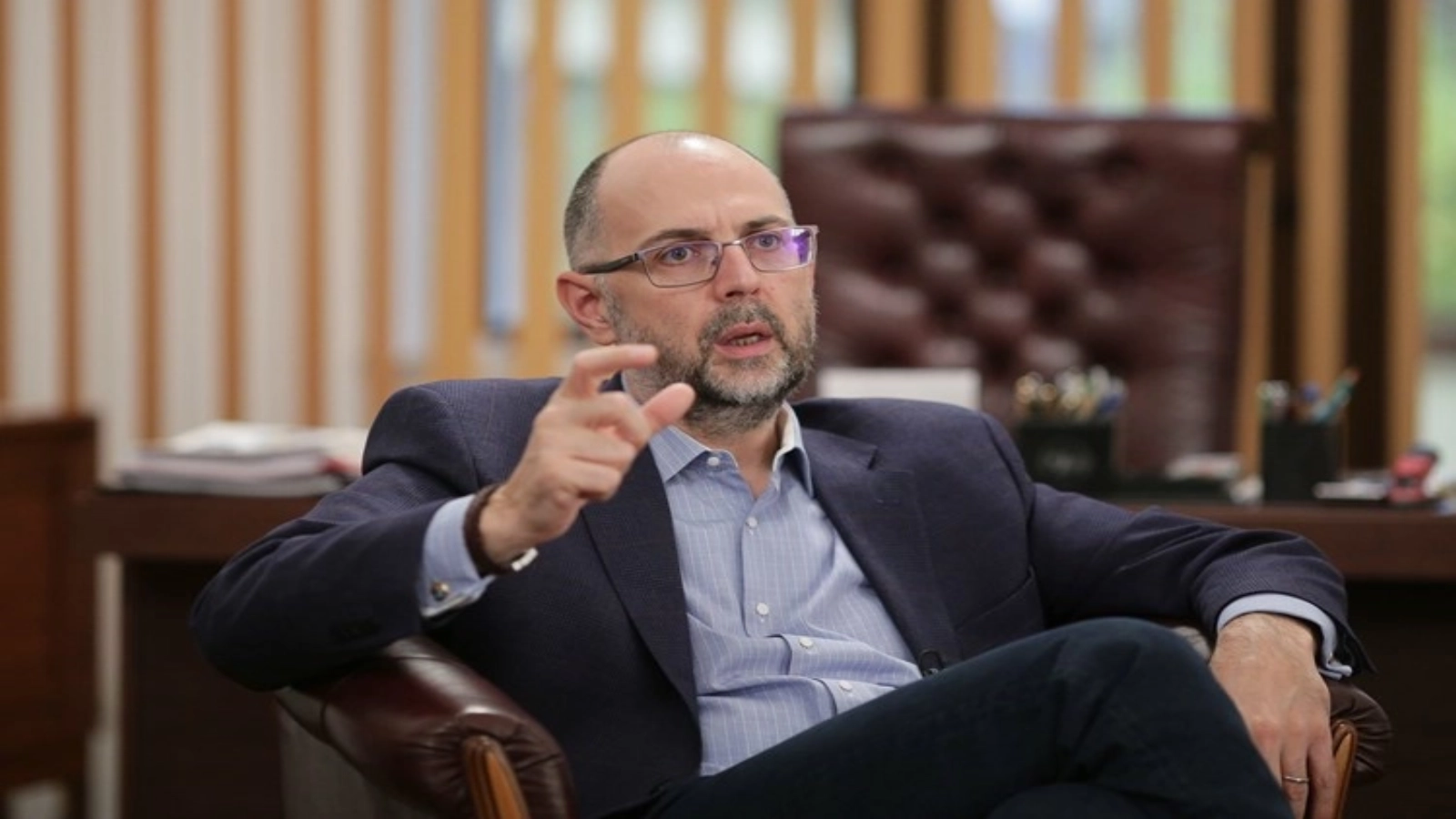
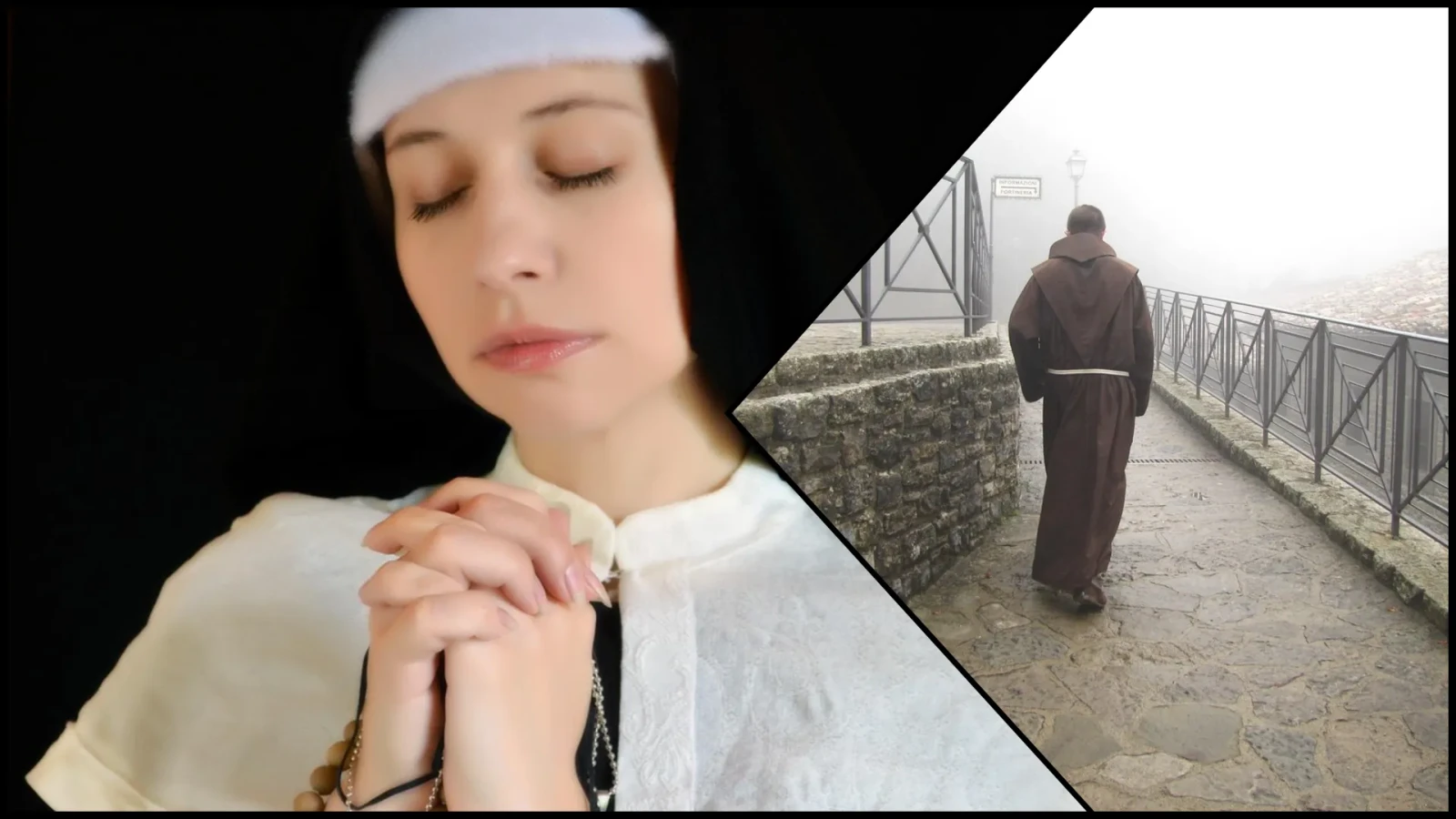




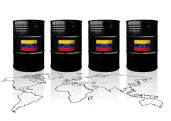
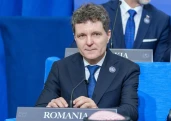




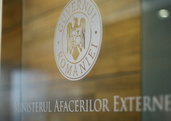
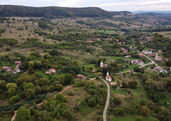
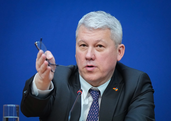

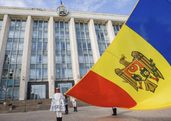
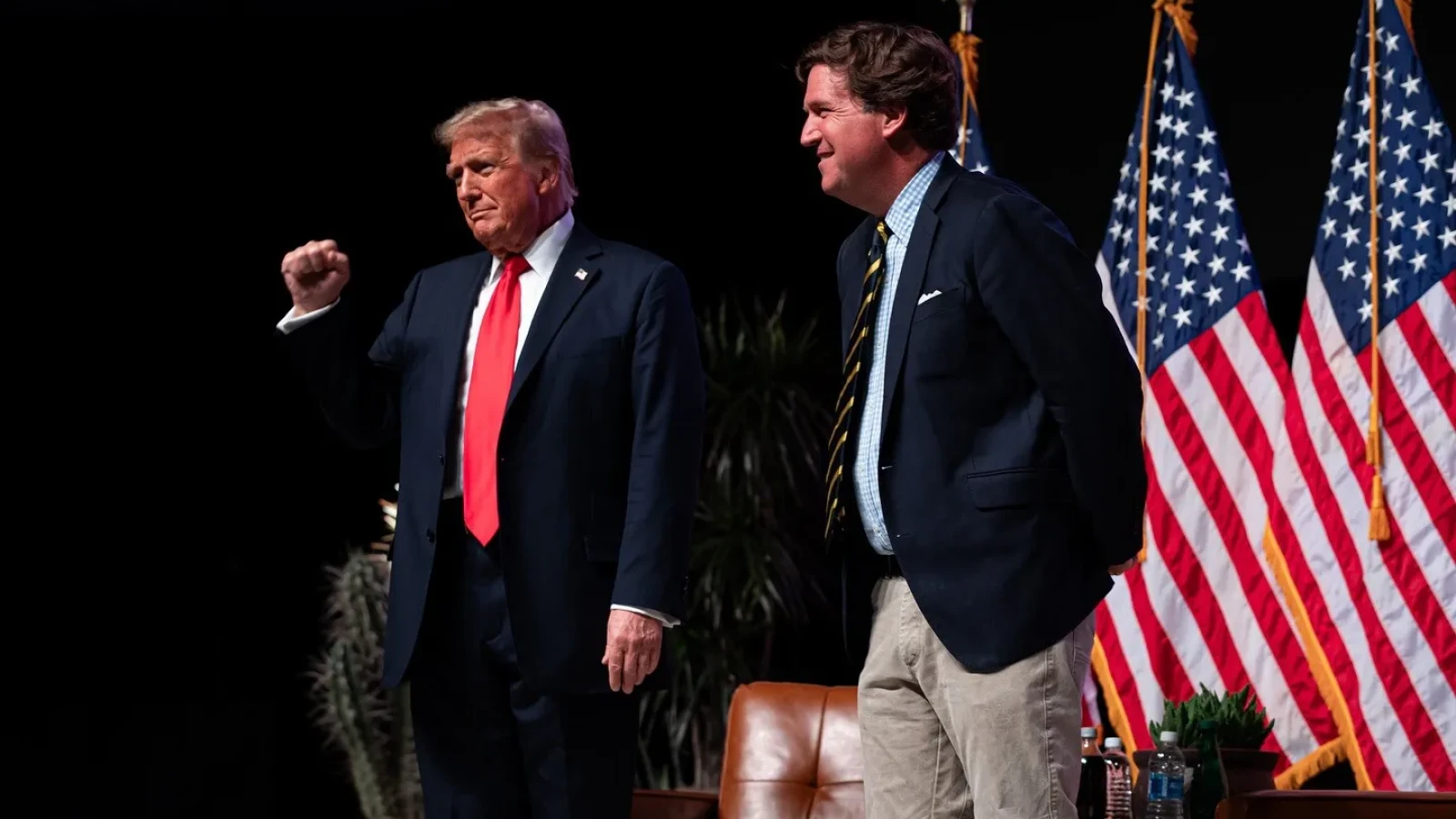
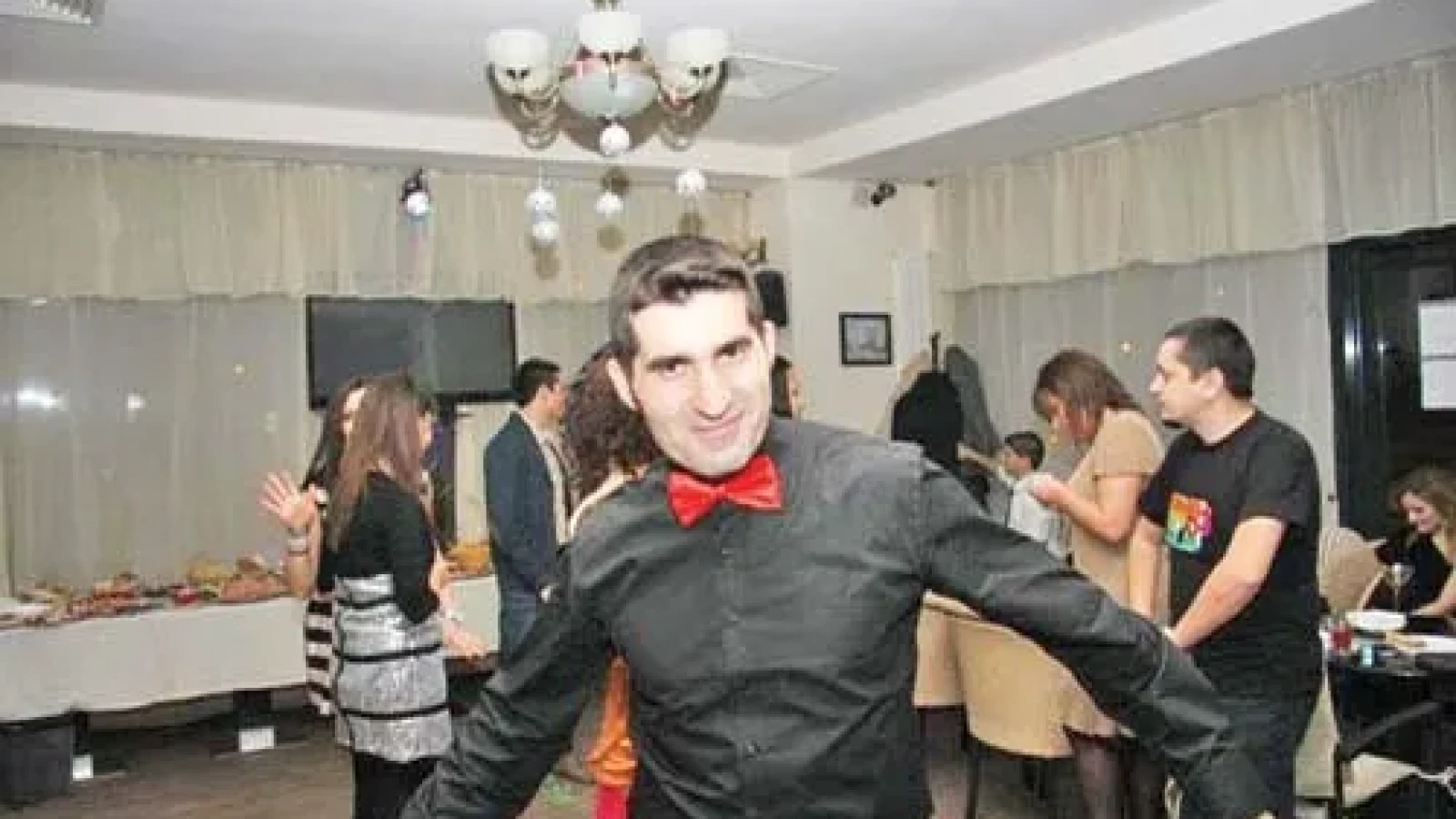
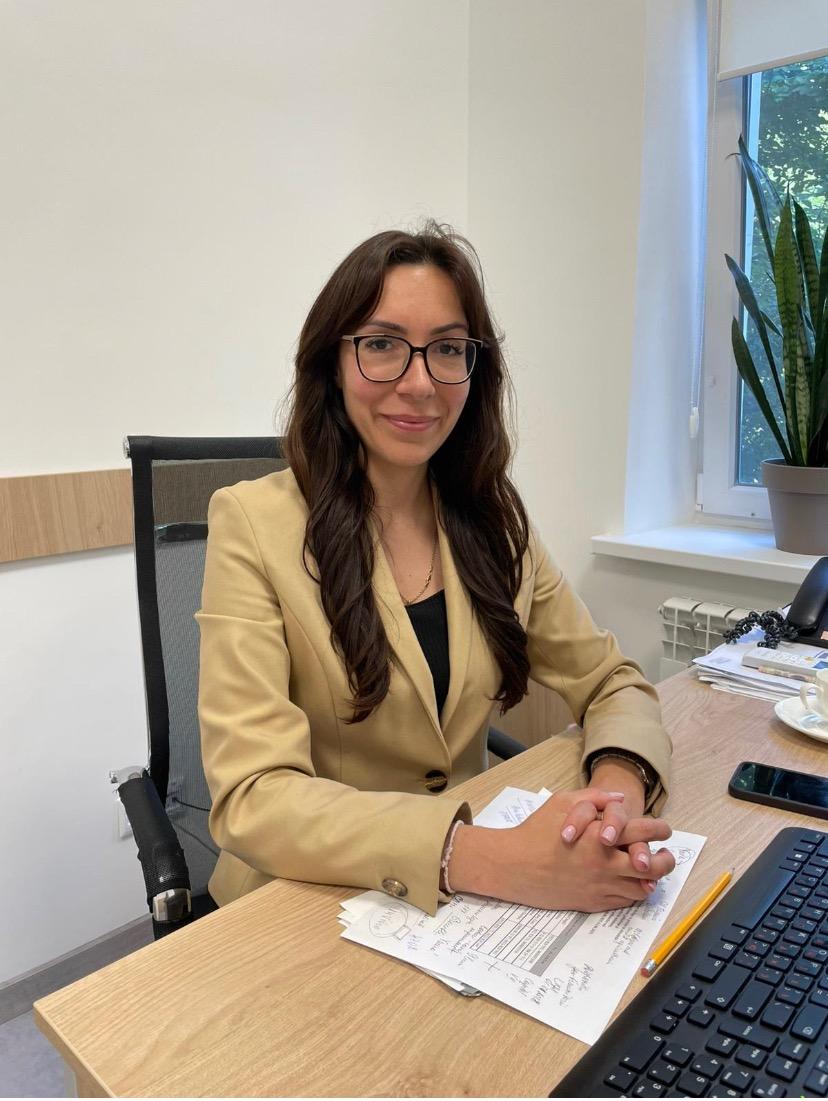
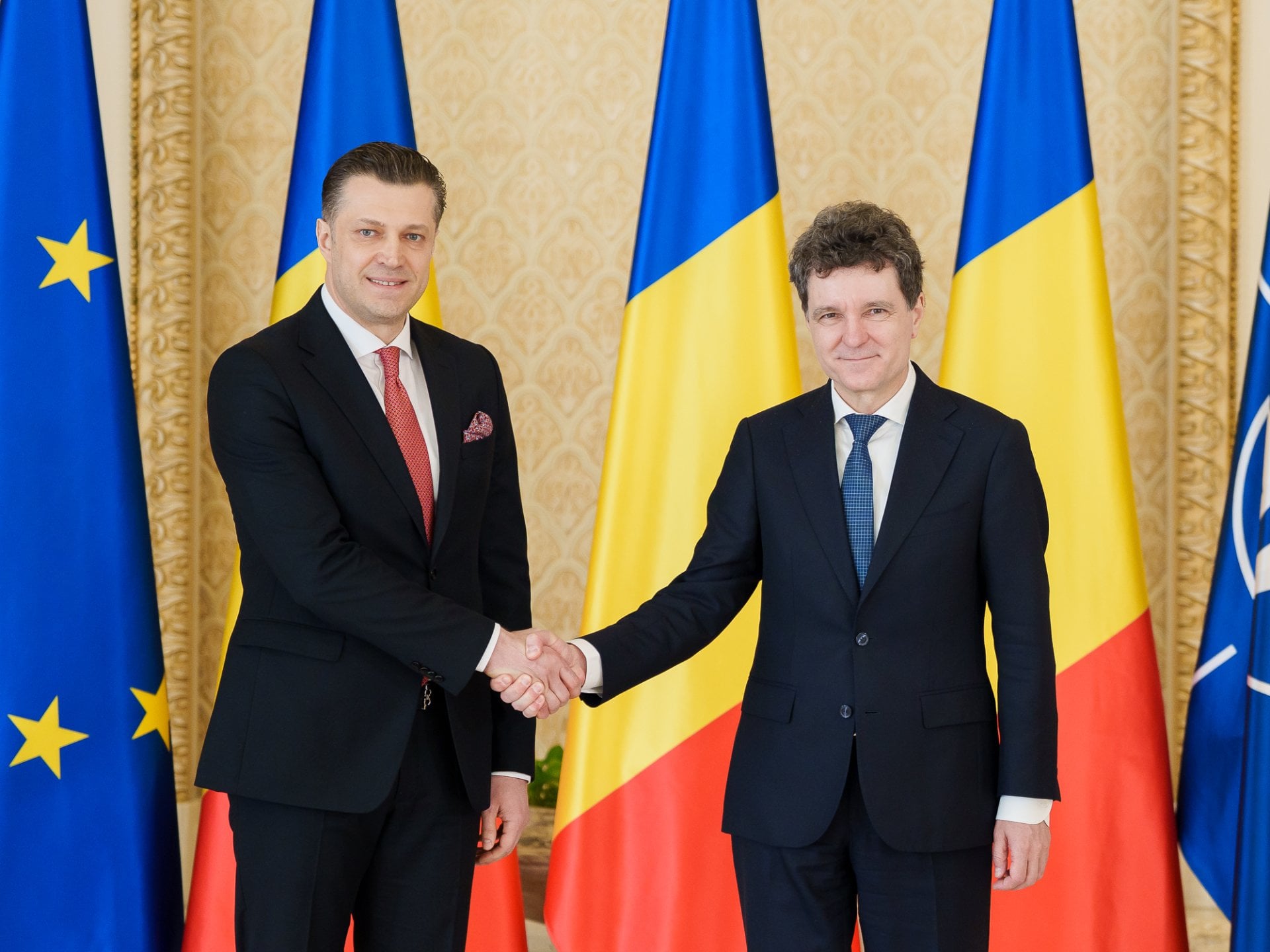
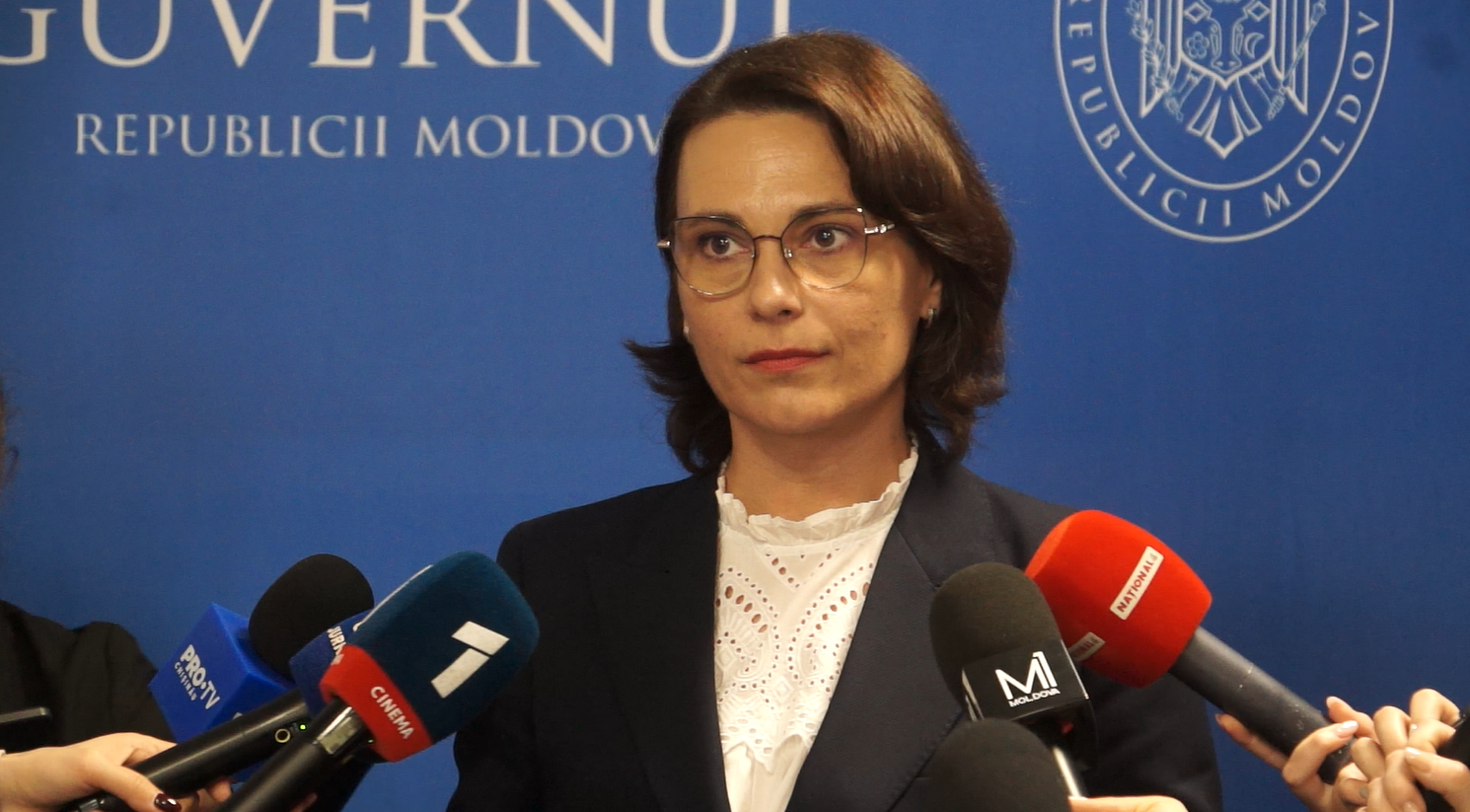
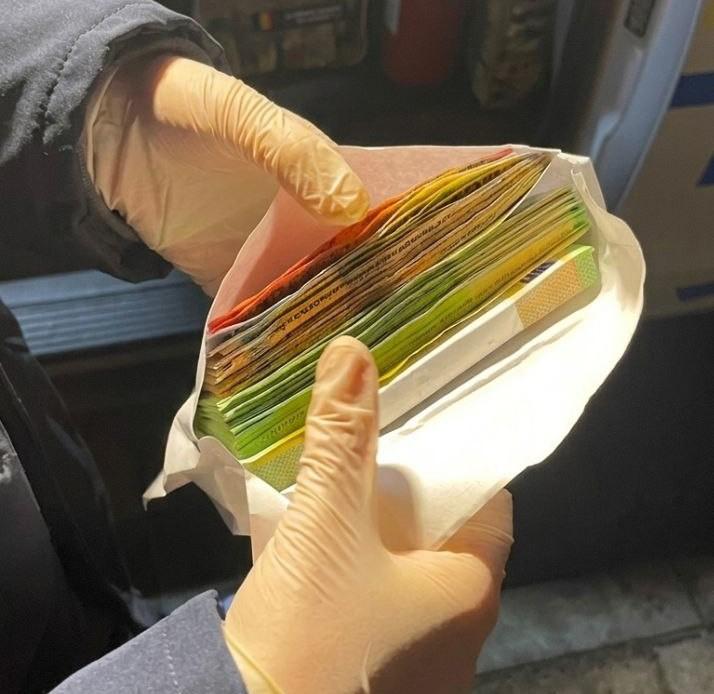


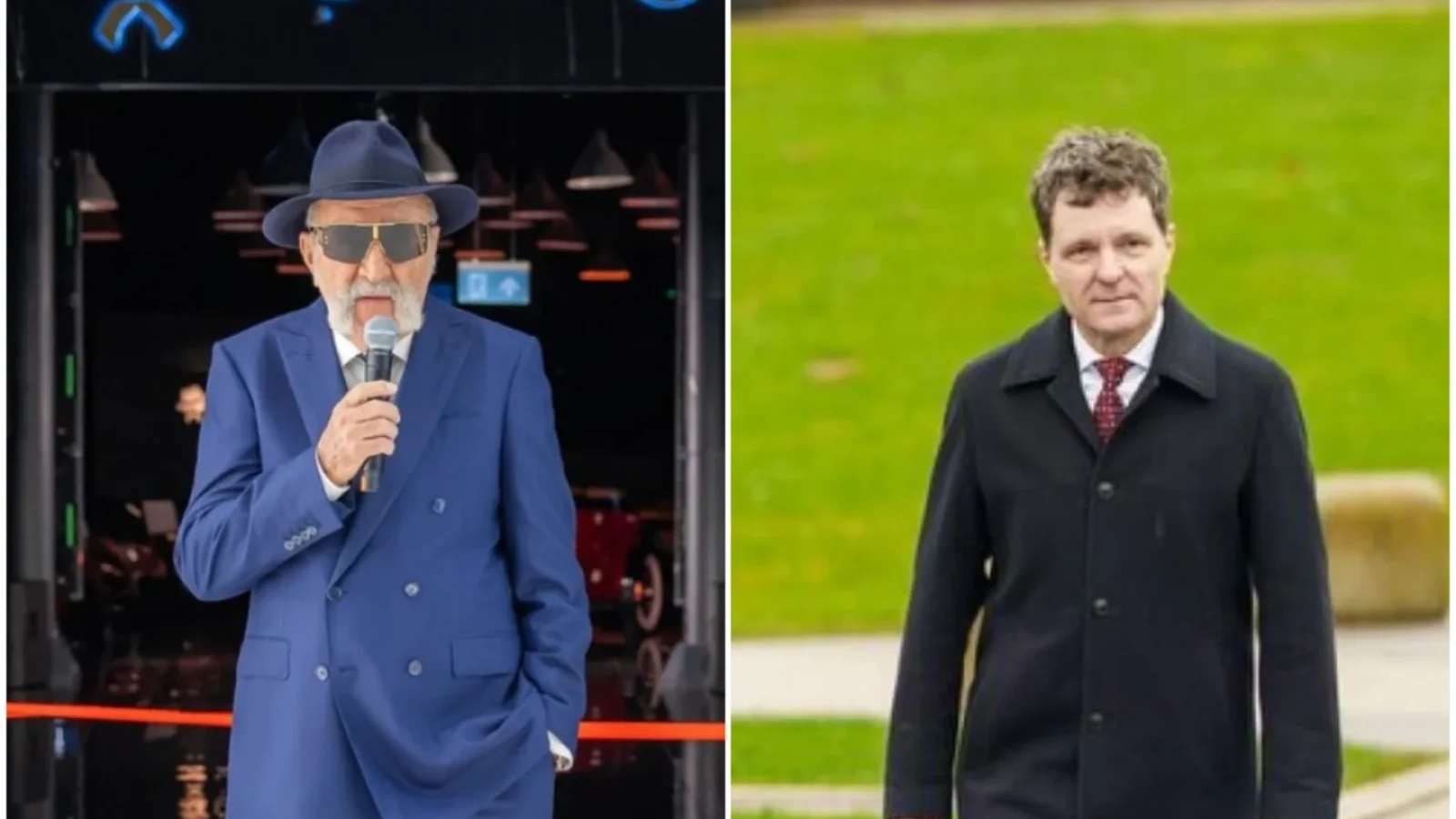





Comentează